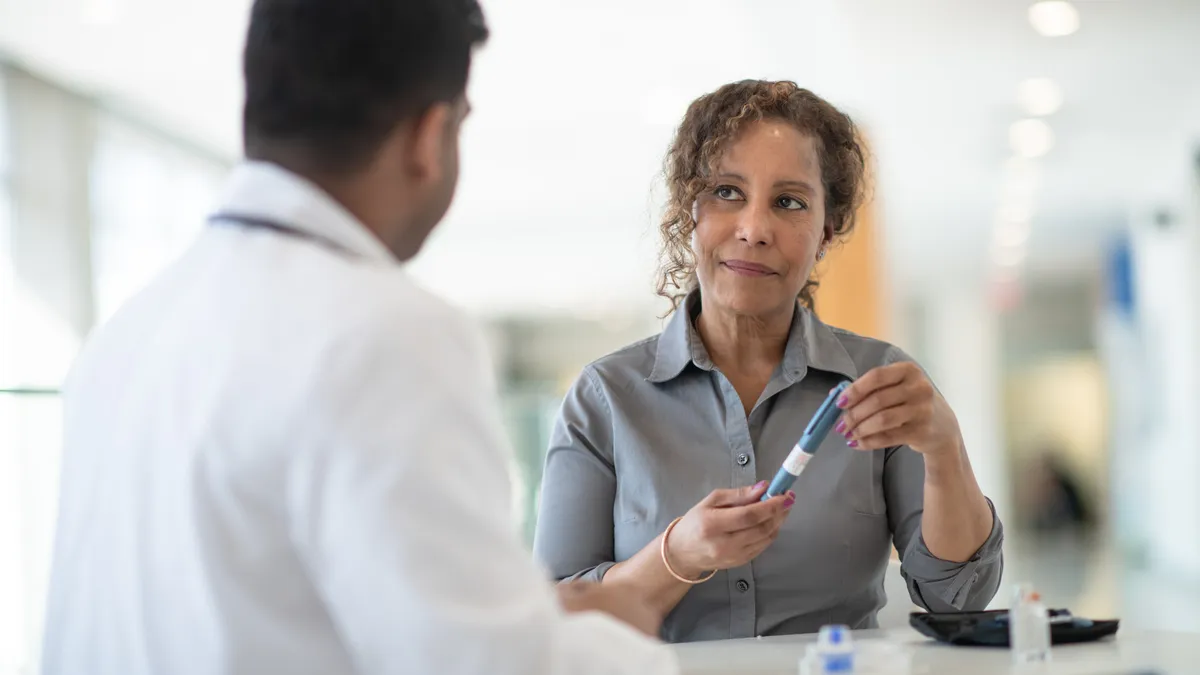Dive Brief:
- Know Labs has shown its electromagnetic platform can quantify specific molecules in liquids in in-vitro testing.
- Working with Mayo Clinic, the company used its Bio-RFID technology to detect water in isopropyl alcohol, sodium chloride in water and commercial bleach in water.
- Know Labs wants to use its technology for glucose monitoring, both continuous and intermittent. The company presented results of internal validation tests in 2021 that it claims showed a high degree of correlation between its Bio-RFID technology and CGM devices from Abbott and Dexcom in humans.
Dive Insight:
Bio-RFID uses spectroscopy to identify organic and inorganic materials and analytes. Applied to clinical diagnostics, Know Labs thinks the technology can support the development of a pocket-sized sensor that non-invasively measures blood glucose and offers an alternative to finger pricks and CGM patches. The company has a market cap of $46.7 million and less than one year of cash.
To validate Bio-RFID, Know Labs worked with Mayo Clinic — which has a financial interest in the company — to apply its technology to three solutions. The collaborators shared Bio-RFID signatures of isopropyl alcohol, together with the 1% to 5% water solutions.
“What we are describing here is truly ground-breaking. This novel application of the Bio-RFID technology to accurately detect and quantify specific molecules in liquid provides strong support for non-invasive monitoring of physiologically and medically relevant analytes in the human body,” Dr. James Anderson, chief medical officer at Know Labs, said in a statement.
The study found that the Bio-RFID technology can “detect concentrations as low as 2000 parts per million (PPM), with evidence suggesting the ability to detect considerably smaller concentration differences,” the collaborators wrote in the poster they presented at the American Physiological Society Summit. If a person has a glucose level of 90 mg/dL and five liters of blood, glucose PPM will be 900.
Know Labs hired Anderson to support its pursuit of U.S. Food and Drug Administration clearance for its non-invasive blood glucose monitoring device. If successful, the project could deliver a wrist-worn CGM device, UBand, that is more convenient for people with diabetes than the fast-selling patches sold by Abbott and Dexcom today. Know Labs is yet to validate its technology in clinical trials.











